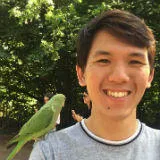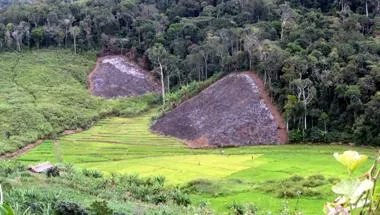
Biography
Brandon Mak is a PhD student in the Department of Geography. He trained as an architect at the University of Edinburgh between 2012-17, where he earned a BA and Master of Architecture. Subsequently, he moved to London to complete his MSc in Sustainable Cities with distinction in 2018 at King’s College London.
There, he collaborated with the Barn Owl Trust to conduct fieldwork as part of his master's thesis, which studied the influence of buildings on the microclimates of nest boxes used for barn owl conservation.
Research
Thesis title: 'The socio-ecological landscape of the urban peregrine'
Urban raptors inhabit a socio-ecological environment where the resources therein, and their ability to safely access these, may be linked to human processes. For my PhD, I first study the breeding site and prey selection of urban peregrine falcons (falco peregrinus) in the UK, with a focus on London populations, to determine what the raptors’ ecological requirements are. I then demonstrate how these resources are not free of human influence. On their predation opportunities, I compare their breeding season diets during and outside of COVID-19 lockdowns to understand how human activity may influence prey availability. I also use multispecies ethnography to highlight how the quality and availability of their breeding sites may be shaped by human-raptor interactions.
Multispecies interactions can also lead to conflict, usually centred around perceptions of predation impacts on sensitive species. Thus, I also quantify the cultural “cost” of urban peregrine diets. Finally, through a historical analysis of challenges to wildlife legislation in context of local and global events, I study how fickle relationships between humans and peregrines – mediated by social constructions of their prey – continuously reframes the raptors’ place in society and thus their ability to safely exist in their environment.
PhD supervision
- Principal supervisor: Robert Francis
- Secondary supervisor: Michael Chadwick
Further details
Research

Political Ecology, Biodiversity & Ecosystem Services
The Political Ecology, Biodiversity & Ecosystem Services (PEBES) group provides a collaborative focus for work on the social (re)production of nature, environmental conservation and resource management.
News
London falcons ate fewer pigeons during lockdowns
The study by King’s researchers suggests that predatory birds in urban spaces are vulnerable to changes in human activities that support prey populations.

Research

Political Ecology, Biodiversity & Ecosystem Services
The Political Ecology, Biodiversity & Ecosystem Services (PEBES) group provides a collaborative focus for work on the social (re)production of nature, environmental conservation and resource management.
News
London falcons ate fewer pigeons during lockdowns
The study by King’s researchers suggests that predatory birds in urban spaces are vulnerable to changes in human activities that support prey populations.

